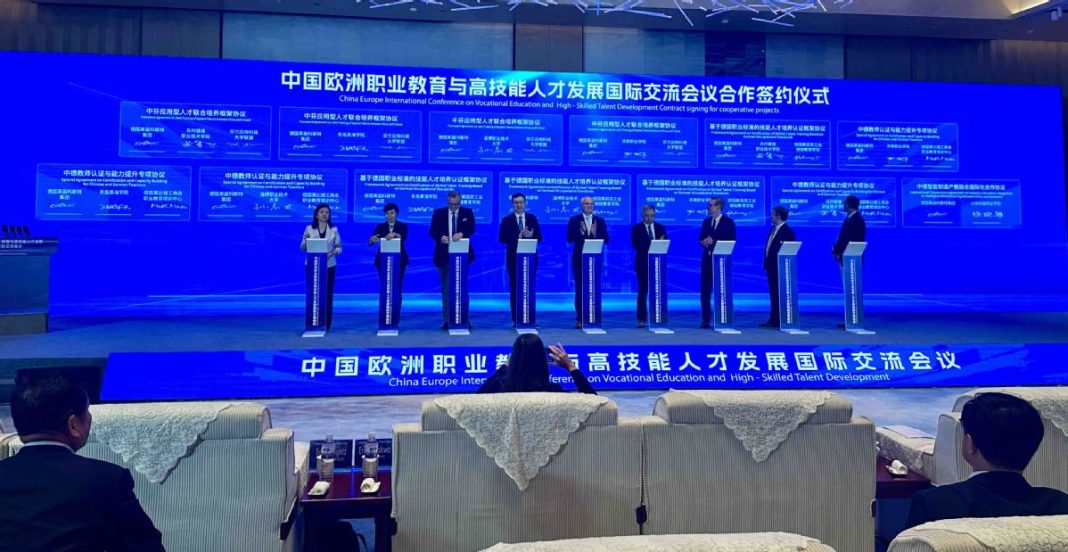BEIJING: The China-Europe International Conference on Vocational Education and High-Skilled Talent Development was held in Qingdao, Shandong province, on Wednesday, with participants calling for measures to embrace the opportunities and challenges brought by informatization, digitalization and artificial intelligence.
“In the era of AI, the cycle of knowledge, skills and technological updates has shortened, leading to rapid shifts in professions. New occupations are emerging while outdated skills are being phased out,” said Liu Qibao, vice-chairman of the 13th National Committee of the Chinese People’s Political Consultative Conferenze. In May, the Ministry of Human Resources and Social Security proposed adding 17 new professions, including cross-border e-commerce operations managers, drone swarm flight planners, electronic circuit designers, as well as 42 new job types, such as generative AI system testers and smart maintenance technicians.
“AI will bring profound changes to the methods, content and scenarios of vocational education. The rapid advancement of technology opens up vast opportunities for its development,” said Liu, who is also president of the China-EU Association.
Jose Luis Rodrigue Zapatero, former prime minister of Spain who attended the event, noted that while AI drives innovation, it also poses societal challenges. “AI will not fundamentally threaten employment — though some jobs may disappear, new ones will emerge,” he said. He called for ethical guidelines and global collaboration to regulate and guide AI development.
Participants agreed to enhance digital training accessibility by jointly building a China-EU Digital Training Cloud Platform, integrating real-world scenarios and projects for virtual simulation training. The conference also saw the signing of cooperation agreements between Chinese and European companies and schools from countries such as Germany and Finland. These partnerships aim to develop international curriculum, integrate language and cultural training with technical skills, facilitate student and faculty exchanges, and establish industry-academia innovation platforms. –The Daily Mail-China Daily news exchange item






